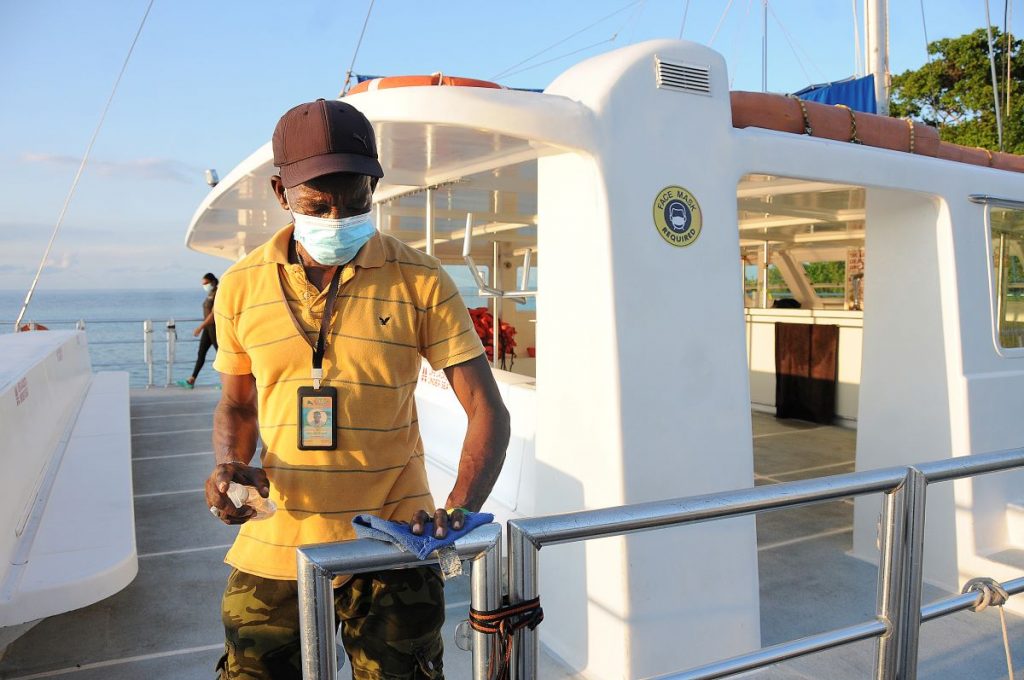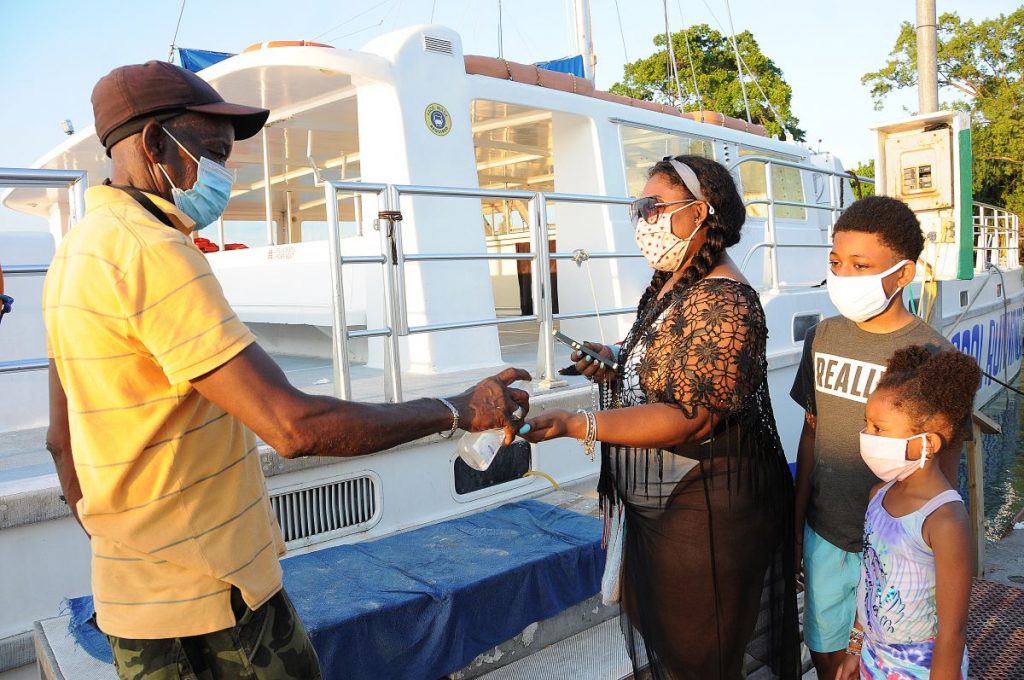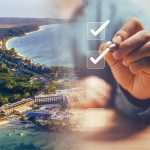For many Jamaicans the country’s tourism resilient corridors are nothing more than mysterious places where visitors to the island, unfettered by no-movement days, are free to frolic with abandon. But for those whose jobs take them into the corridors, they know the hard work that goes into making the ‘bubbles’ safe.
According to Tourism Product Development Company (TPDCo) Acting Executive Director Stephen Edwards, at the last count 1,250 certificates had been given out to various applicants that have gone through the rigorous steps needed to be certified under the Ministry of Tourism COVID-19 Health and Safety protocols. These range from providers of accommodations and activities to those who supply transportation on the ground. They include hotels, villas and small guesthouses; water sports and adventure tours; JUTA, JCAL and more. The corridors run along the coastline from Negril to Port Antonio (north coast corridor) and from Milk River to Negril (south coast corridor).
Roughly 22 TPDCo employees work every day to get others to qualify in between spot checks to keep those already certified on their toes. That’s just one aspect of the elaborate process that goes into ensuring that the corridors remain among the safest places to be as the world adapts to living in a pandemic.

As chairman of the Tourism Resilient Corridors Committee, John Byles, points out, even as Jamaica and its major tourism markets battled double-digit COVID-19 cases in their latest waves of the pandemic, the number of cases in Jamaica’s resilient corridors never passed 1.7 per cent.
For Byles, it’s all about discipline.
“When we talk about a corridor, there’s no barrier. Jamaicans come onto the corridor, they go to the attractions, they go to the hotels. But when they’re there, the protocols are being managed and they follow the protocols like anybody else. The corridor is… more of an economic zone of discipline,” he tells LetsTravelCaribbean.com.
He believes the model can be replicated across the country if enough people buy into the approach.
“You can’t do it and expect that the police are going to be the ones that have to monitor it, and that’s the [mindset] that training [provides]. About 26,000 people were trained, virtually, before the opening of the corridors. Everybody understood, not just were told, that these are the protocols. They understood ‘why’ these protocols were needed. And that’s an important part, understanding the ‘why’ so that people can have a greater commitment to following through,” he says.

People like Carl Calvin, who operates Captain Moses Water Sports in Negril, understand all too well the need to follow the protocols. Masks and bottles of hand sanitiser have now joined standard safety equipment on board his two vessels, elevated — by the pandemic — to the same level of importance as life jackets and fire extinguishers. In Ocho Rios, Five Star Water Sport owner George Pasmore and his 50 employees are quite clear on the need to keep themselves and visitors safe as they shepherd them to and from attractions from Westmoreland to St Ann. At Appleton Estate Rum Experience in St Elizabeth, tour guide Kayon Wright misses giving guests fist bumps but he and the rest of the team still find a way to provide them with a warm welcome. And proprietor of St Catherine-based Scentre Yourself, Claudine Campbell-Bryan, who says visitors to the island make up about 10 per cent of her clients, already knows what lessons she will incorporate from living with COVID into a pandemic-free future. Scentre Yourself is a small, almost 100 per cent online operation that does not necessarily need certification but still relies heavily on the safety protocols. The other three companies all have TPDCo’s COVID-19 protocol compliant certificate.
The added layer of safety complements decades-old standards that have served the tourism industry well over the years.
“The COVID resilience certification is that you have to follow each of those operations, everybody has to be trained. And you have to have the necessary infrastructure for dealing with the sanitisation or the reconfiguring of the operations to ensure the [smooth] flow of people and, of course, the equipment changes and so on. [For] transportation [it means] the reconfiguration of the seating [to look at] where people can sit and who can sit with whom,” Byles explains. “A lot of people look from the outside and they don’t know that every JUTA man or JCAL or Maxi has been trained, his bus has been inspected, that he is very clear on how he positions people within his bus. They don’t know about the screening and the standardisation that takes place. They don’t know what all of the different members of the industry have gone through to become certified.”
He added, “There are too many people trying to [give the impression] that there’s another world here on the corridor. It’s just discipline; that’s the differentiation.”
































































































































































































































































